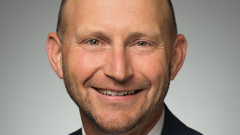What's on the horizon for accounting? The
The vast majority of this year's influencers expect artificial intelligence and its transformational impact on technology, operations, the workforce and much more to be the most significant change catalyst. But other prognostications include new business models, new methods of recruiting and training professionals, and shifting trends in transactional activity and funding sources for the profession.
(To see the full responses of all the candidates for the Top 100,
































